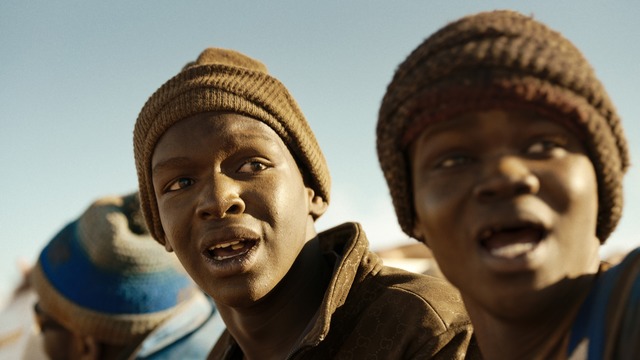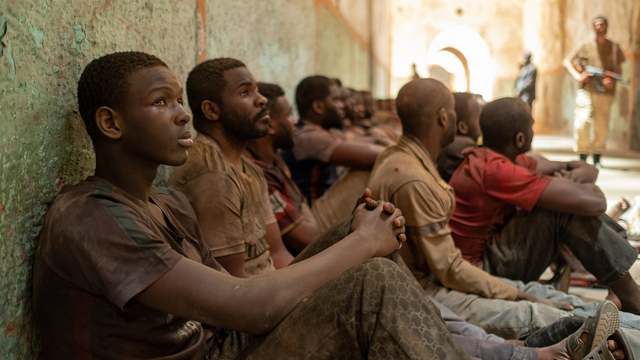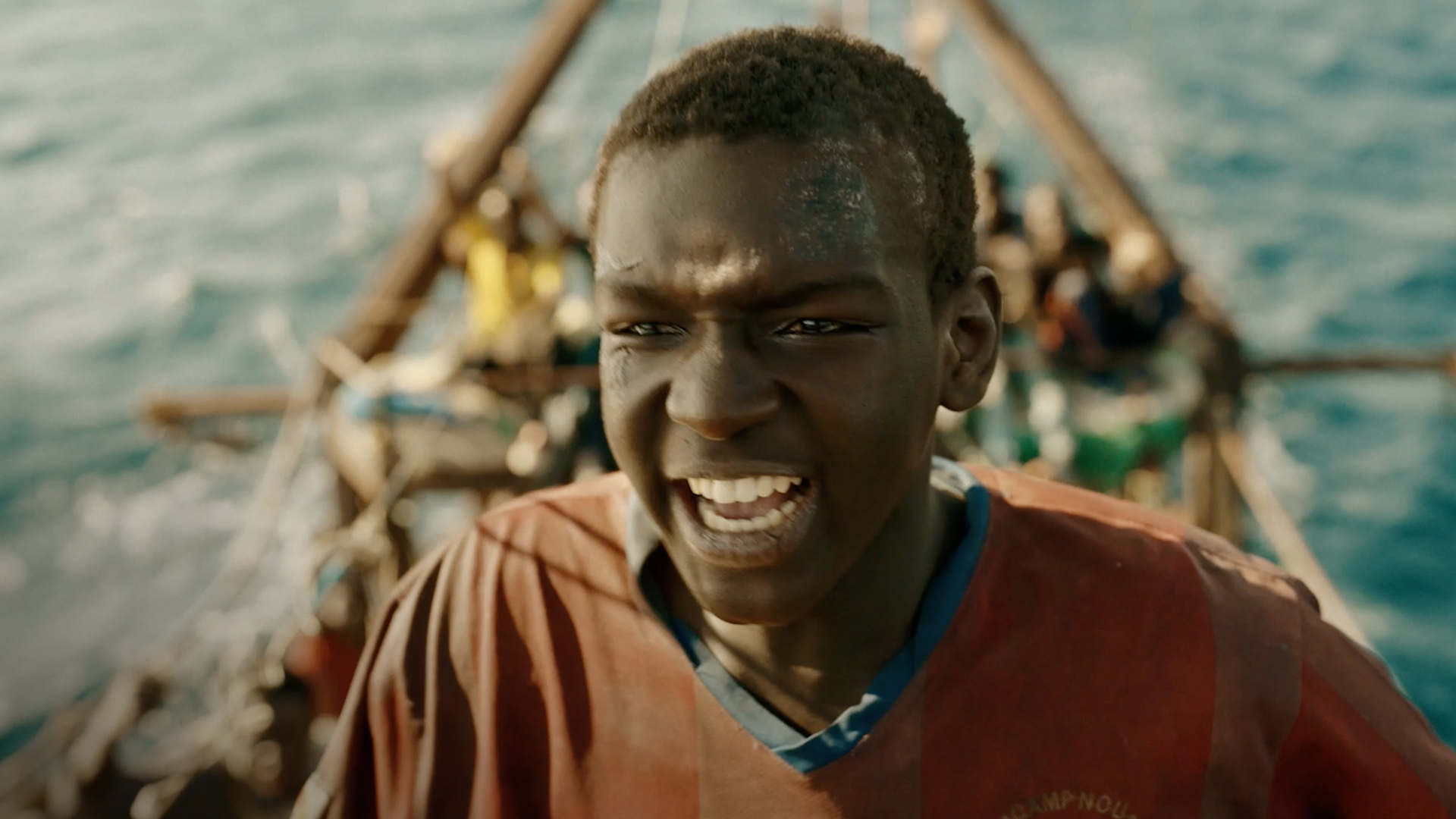Anyone who’s seen the promotional materials for Io Capitano can expect a bit of a surprise from the movie itself. The poster shows a woman in colourful garments about two meters above, and parallel to, the desert floor, where a man on the ground holds her hand as if she were a balloon. The sort of magical realism implied by this memorable image only makes a handful of appearances in Io Capitano, and a small handful at that. It’s a movie a lot more governed by the harshness of real realism than the flights of fancy, literal or otherwise, of magical realism.
If there is a bait-and-switch going on in the marketing for this film, it’s for an enriching purpose, if not always for the faint of heart. An Oscar nominee for best international feature at the Oscars earlier this month, Matteo Garrone’s film opens its eyes to the dangers of crossing deserts, of hiding money from thieves, of trusting inherently untrustworthy individuals, of determining which morals to sacrifice in an attempt to save your life and which not. Yes, this is the harsh realism of the African eager to emigrate to Europe for a “better life” – those who emerge with a life still to have, that is. Underpinned by a strong lead performance from an amateur actor, Io Capitano erases the memory of the movie that poster made us think we wanted.
The story is simple and straightforward. This odyssey begins – and the similarities to Homer are likely intentional – with a 16-year-old Senegalese boy called Seydou (Seydou Sarr), who randomly floats the idea to his mother that he could leave Dakar to work in Europe, where he could make money for the family. The reaction of his mother (Khady Sy) is so violently opposed to this idea that he has to backtrack and say he was joking, though it’s not a very convincing ruse and she sees right through it. She eyes him warily for the rest of the night during dancing and celebrations in the village, but she probably doesn’t have any reason to suspect Seydou will leave secretly without even telling her.
Seydou’s companion on this journey is his cousin Moussa (Moustapha Fall), who has similar big dreams and has gotten similarly rebuffed by his own mother. A local shaman foresees that they will have good fortune, which is enough blessing for the two young men to steal away by bus on a trip through several countries to arrive in Tripoli, where they can catch a boat to Italy. They are expecting hardships along the way – one guide tells them the only safe place to hide their money is rolled up and inserted in their rectum – but nothing could prepare them for the utter abandonment/betrayal of any of those who vowed to get them where they’re going in one piece.
If you could pull out from that image of the woman floating above the desert in the Io Capitano poster, you’d be aware of the bleaker context of the apparently hopeful imagery. Seydou is imagining this scene, when in reality, this woman is dead or dying at a distance behind them, with every step they continue away from her further guaranteeing her doom. See, Seydou, Moussa, and a dozen others from around Africa have been left to walk across the desert to their next mode of conveyance, and if they don’t keep up with the caravan, they’ll be as destined to die of exposure as the crying woman lying in a heap on the ground.
Their continued mishaps only worsen, and it does not serve to outline them here. You only need to know that they are exactly the sorts of reasons Seydou’s mother forbade this voyage in no uncertain terms. If it weren’t for the fact that Seydou is our main character, at any moment it feels as though he could be lost to the capricious whims of mercenaries who roam the African deserts and are all too eager to strip them of anything that allows them to cling to their basic existence.
Io Capitano is a movie of random good luck as well as random bad luck, and it sometimes feels as though the good luck is a little unearned. A Hollywood telling of this tale – as if there would be such a thing – would be more diagrammatic in its scripting of these boys’ harrowing adventures. And while that would not be what this story needs, it’s difficult always to avoid the awarness of some missteps on a basic dramatic level. However, the numerous strengths of this material, both in the conception and the storytelling, washes away any minor misgivings about the details.
So much of Io Capitano rests on the peformance of Sarr in the lead role. Garrone allows the magnitude of certain moments to depend on Sarr’s facial expressions, leaving the camera on him for the shock and horror to seep in over extended moments. IMDB shows Sarr with one previous acting credit in a French film from 2001, but that is likely an error unless he was playing an infant. What we have here is a man who has never acted, yet understands the craft on an intuitive level that defies belief. Our heart aches for his every indignity, but it’s not because the actor begs for our sympathies. He knows instinctively how to connect with an audience as a young man with the best of intentions and the worst of the world eager to destroy him.
In keeping with Garrone’s tendency to sap the drama from certain scenes, the staging of the climax of Io Capitano doesn’t necessarily get us all the way to the catharsis we want and need. This could be a feature not a bug. It’s probably easy to surmise that the movie doesn’t end with Seydou rotting in a prison somewhere, since that would indeed be too much of a departure from the twice-mentioned image in the poster. Where it does end, on a moment of superficial hope but deeper questions, is probably truer to the lives of young men like Seydou and Moussa, who set out to improve on what their families have, before realising the grass might have been greener on their side of the fence.
Io Capitano opens today in cinemas.



